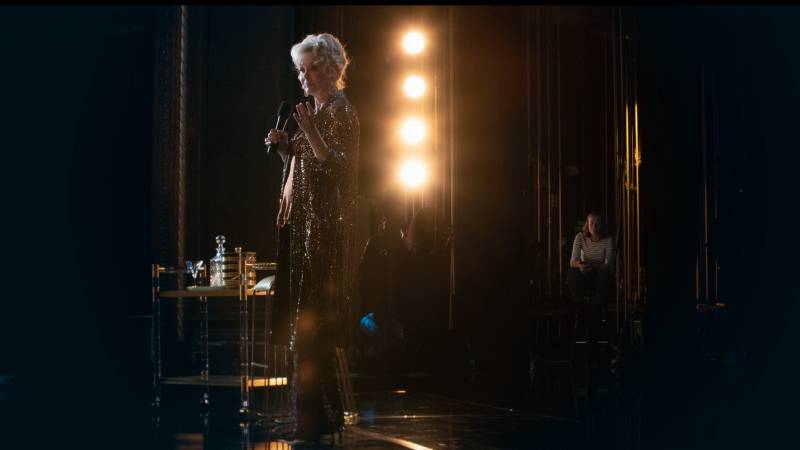The show is teetering on knife-edge, in this scene. You can imagine it going one of two ways: Either it adopts Ava’s point of view and proceeds to depict Deborah as a cartoon of an out-of-touch comedy relic with a fossilized understanding of race and gender whose wealth and station have turned her into a pampered diva. Or it takes Deborah’s side, and becomes a thin excuse for an endless string of exasperated jokes about Millennials, vaping, sexting and “cancel culture.”
We then learn that Ava’s lost her cushy gig writing for a show in L.A. because of a joke she tweeted about a US Senator. And we think: That’s it then, the die is cast. The show’s an excuse to whine about “cancel culture” and vape pens and avocado toast. Whee.
And then, soon after the Ava-Deborah meeting goes south, we learn what exactly the tweet in question was, and we deflate even more.
Because we’ve seen comedy written about the comedy business before, countless times, and it rarely works. It’s come to be called the Studio 60 phenomenon, named for Aaron Sorkin’s Studio 60 on the Sunset Strip, his attempt to offer a behind-the-scenes peek at the makings of an SNL-like sketch comedy show. The behind-the-scenes stuff was full of the kind of comedic dialogue Sorkin could write in his sleep. But the scenes? The actual sketches? Upon which the conceit of the series entirely depended? Were so woefully, painfully unfunny they represented a serial assault on the audience’s suspension of disbelief, from which the show could never recover.
We think that’s what’s going on, here, too, at first. Because Ava’s tweet 1. Would never, on the face of it, result in anything approaching “cancellation” and 2. …
Well, that’s the thing. That’s when the show firmly establishes that it knows whereof it speaks. Because that’s when Deborah rolls her eyes at Ava, and tells her exactly what we the audience is thinking: “It’s just not funny,” she says. (They proceed to workshop the joke, and they make it better. Better, not good. This seems important.)
From that moment on, Hacks lets the hard, caricature-like outlines of both Ava and Deborah proceed to abrade away as the two women are allowed to become rounded, real characters. They still clash, often, over the course of the season (the first six episodes out of the season’s ten were released to press), because that’s where the show’s humor is chiefly located. But those clashes tend to be small, smartly observed and specific, not cartoonishly broad. That they will both grudgingly come to acknowledge and validate each other’s comedic sensibilities is a foregone conclusion, given the series’ odd-couple setup; the delight resides in the unforced chemistry between Smart and Einbeinder, and in how that mutual respect evolves.
I don’t know if the role of Deborah Vance was written for Smart, but she certainly makes it seem like it was. Moments that could be played for unkind laughs—a Sally-Field-in-Soapdish moment when Deborah boards a Hollywood tour bus in search of validation, say—are instead played for their humanity and vulnerability. As a result, the payoffs prove infinitely more satisfying. Smart’s also convincing as a standup, performing Deborah’s vaguely hokey routines with a naturalistic flair as if she was born to it.

9(MDAxOTAwOTE4MDEyMTkxMDAzNjczZDljZA004))

